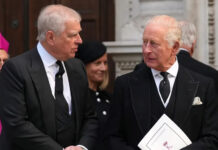From Aljazeera:
Under a deal mediated by China, Iran and Saudi Arabia have decided to resume diplomatic relations. While this agreement may have broad ramifications, observers say the major task will be to build on it.
The accord reached in Beijing on Friday said the two countries’ foreign ministers will meet to discuss diplomatic missions within two months, marking the end of a seven-year split.
The agreement was mostly praised by senior authorities in Iran as a step toward easing tensions and enhancing regional security. The main topic of discussion in conservative media sites was how the agreement represented a “loss” for Israel and the United States.
When Riyadh severed political ties with Tehran in 2016 following an attack on one of its diplomatic missions, some of the same sites had rejoiced.

Demonstrators broke into the missions after a prominent Shia Muslim leader was put to death in the kingdom with a Sunni majority.
At that time, Saudi leaders had also been criticized by Ali Hosseini Khamenei, the supreme leader of Iran.
However, none of the Iranian government representatives or state-affiliated media are currently outwardly expressing pessimism as the April 2021 talks have now been successfully concluded thanks to the efforts of Chinese President Xi Jinping, who visited Saudi Arabia in December and hosted Iran’s President Ebrahim Raisi last month.
Many people in the area, including Iraq and Oman, who had previously assisted in mediating the negotiations, hailed the rapprochement on Friday with cautious hope while the US did not.
- ‘High level of distrust’
The agreement is a positive development but is only one step of many, according to Tehran-based political analyst Diako Hosseini.
Saudi Arabia will probably continue to be careful when conducting business with Iran since it does not want to be subject to American sanctions. Nevertheless, normalization does not always imply mutual confidence between the two parties, according to Hosseini, speaking to Al Jazeera. Nonetheless, both parties may have a variety of interests in decreasing tensions in Yemen, Lebanon, Syria, and Iraq.
The eight-year conflict in Yemen, where Iran and Saudi Arabia back opposing factions, may cease with the deal, according to Hosseini, but that would be a challenging goal to accomplish.

The trend of decreasing tensions may be reversible due to the high level of mistrust and the ferocity of geopolitical conflicts. To succeed, both nations must start ongoing, sustained efforts and test trustworthy strategies that would ensure shared interests, he said.
China, in Hosseini’s opinion, was the major beneficiary of the accord since it increased the legitimacy of its influence throughout the region.
The US can no longer disregard China’s participation in the security arrangements of the Persian Gulf, a region where the energy reserves and routes are more essential to the Chinese economy than the US, he claimed. As a result, China effectively became the agreement’s guarantee.
- ‘Shifting violence’
Rather than resolving significant disputes, Thomas Juneau, an associate professor at the Graduate School of Public and International Affairs at the University of Ottawa, concurs that Friday’s agreement may serve to ease tensions.
“Iran-Saudi tensions have ebbed and flowed for decades, but their floor has always been high,” he told Al Jazeera, adding that an exhausted Saudi Arabia has been searching for a resolution to the Yemen conflict for a long time and that a deal with Tehran could result in a deal with the Iran-backed Houthis.
“That said, it is very important to understand that such an agreement, if it were to occur soon, would unfortunately not lead to peace in Yemen,” he said, adding that conflict between the Houthis and the Saudi-backed coalition would continue and secessionist demands in southern Yemen would persist.

According to him, a Houthi-Saudi agreement would result in the bloodshed changing, not stopping.
As part of any compromise with Saudi Arabia, Iran may agree to make some concessions on Yemen, but it will not agree to stop supporting the Houthis, according to Juneau.
“Iran has been able to significantly expand its influence in the southwest of the Arabian Peninsula thanks to its assistance for the Houthis. Iran won’t let up on this crucial instrument in its arsenal.
- Significance of past agreements
In their less than a century of formal diplomatic relations, Iran and Saudi Arabia have had a rocky past. After Iran’s Islamic revolution in 1979, these relations have also had many ups and downs.
Invading Iran in the 1980s with the help of Saddam Hussein of Iraq, the monarchy later sought to forge deeper ties with Tehran.
A general cooperation agreement and a security cooperation agreement were signed by Tehran and Riyadh in 1998 and 2001, respectively, under the reformist president Mohammad Khatami’s administration in Iran.
While he was the defense minister at the time, Ali Shamkhani, the current security head of Iran, played a significant part in attempts to bind the two nations together. In fact, in the early 2000s, he was honored with the Order of Abdulaziz medal, the highest honor bestowed by the kingdom.
According to Sina Toossi, a non-resident senior scholar at the Center for International Policy in Washington, DC, the two accords that were made decades ago were specifically referenced in the text of Friday’s deal, with both sides promising to fulfill them.
“The inclusion of these earlier accords may be interpreted as a compliment to the cordial ties that Iran and Saudi Arabia enjoyed in the late 1990s and early 2000s. The remark may be interpreted as an effort to revive this atmosphere of cooperation between the two countries by mentioning this period of good relations, he told Al Jazeera.
According to Toossi, the 1998 deal lay the groundwork for the historic security accord in 2001 and included a wide variety of topics, including deeper security, economic, and cultural cooperation.
The development of collaborative security organizations, greater trade, the issuance of business visas to each other’s citizens, and regular high-level diplomatic communication all contributed to this period in Iran-Saudi relations.
According to Toossi, mentioning these earlier agreements also emphasizes the potential for more collaboration and communication.
“By doing so, the two parties are imply accepting that they share interests in matters like regional security and economic cooperation. The two nations’ upcoming conversations on addressing their disagreements may be launched from these previous accords, he suggested.
How the two will approach a variety of delicate subjects, including worries about their military and nuclear programs as well as internal affairs, remains to be seen.



